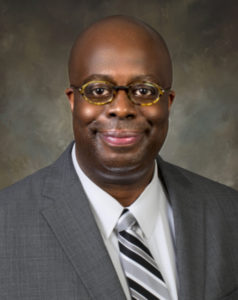Chad Lassiter: 4 lessons learned at PHRC while combatting hate
 September 10, 2019
Category: Featured, Medium, Purpose
September 10, 2019
Category: Featured, Medium, Purpose
A state diverse in race, religion, sexual orientation, education, and gender may be the American ideal, but the American reality is that hate is raging back. Pennsylvania ranks in the top 10 of states with the most hate groups in the country.
Professor Brian Levin, director of the Center for the Study of Hate and Extremism at California State University, San Bernardino, (CSHECSU) will testify before the House of Representative’s Committee on Homeland Security today (September 10), stating that “more people were murdered domestically so far in 2019 by just a handful of white supremacists, than all of those killed in the whole of calendar year 2018 in every extremist/hate homicide event. The fatalities per incident are also trending up as semiautomatic rifles continue to be their weapon of choice.”
“There’s a lot more hate and racism going on in Pennsylvania than the average person understands,” the Pennsylvania Human Relations Commission (PHRC) Chair, Joel Borstein, told a York Daily Record reporter.
Last year the Executive Director of the PHRC, Chad D. Lassiter, said in an interview with Generocity: “Look, I am very historically aware of the challenges of white supremacy, state violence and of bringing about tolerance. The question is how the agency speaks back to discrimination.”
Now, after little over a year into the job he admits, “you read about hate in Pennsylvania, about the anti-Semitism, the domestic terrorism and the Islamophobia but it is all too real.”
His tenure started with PHRC holding hearings on the York County Grandview Golf Course incident. Five Black women who were experienced golfers claimed discrimination when they were told to leave for playing too slowly. The Grandview Golf Course ultimately issued an apology. Several months later, the PHRC returned to York to work with local officials on the resurgence of the KKK in the county.
And it what is now being called the deadliest anti-Semitic attack in American history, 11 people were killed at Pittsburgh’s Tree of Life Synagogue, all-too-graphically illustrating the CSHECSU’s finding that “Jews were the direct target of half of the bias/extremist homicides in 2018, the worst year ever for anti-Semitic killings in the United States.”
“The Pennsylvania Human Relations Commissions continues to fulfill its role of advancing the respectful representation of and justice for all people in our commonwealth,” Gov. Tom Wolf said. “The horrific events of the antisemitic attack at the Tree of Life synagogue in October 2018 only heightened the need for a strong voice against hatred of all types.
So one year into the term, this is what Lassiter has learned:
1. You can’t do this work unless you build coalitions.
“You have to work with people across the color and gender lines. You especially need white allies committed to the work of bringing justice to counter the growth of white supremacy,” Lassiter said. He has initiated the “No Hate in our State” listening tour to generate community-based solutions to race-based incidents and has convened five town hall style meetings, three in York County alone, to build support among social justice allies to celebrate the benefits of cultural diversity.
2. You can’t do this work unless you broaden the mission.
The PHRC is charged with enforcing state laws that prohibit discrimination and is contracted with the federal Equal Employment Opportunities Commission (EEOC) and Housing and Urban Development (HUD) to investigate employment and housing discrimination complaints. But Lassiter’s plan is to add social justice activism to the mission statement. “I’m trying to change the ethos from a processing agency with an EEOC contract and a HUD contract. It can be both/and,” he said.
3. You can’t do this work without recognizing the problem of sexual harassment
Last May, the PHRC sponsored a workshop on Sexual Harassment: Ending the Cycle of Silence Where You Live, Work and Learn. It was sponsored in partnership with the Pennsylvania Department of Behavioral Health and Intellectual Disabilities Services‘ Engaging Males of Color Initiative and First Person Arts. Tarana J. Burke, founder of the #MeToo movement, gave the closing address. “I didn’t really know how big a problem that sexual harassment was,” Lassiter said. More than 7,500 sexual harassment claims were filed with the EEOC in FY 2018. This was a 14 percent increase from the prior year.
4. You’ll do this work with limited resources.
Once upon a time, the PHRC was fully staffed with 200 people, but now it employs less than half that amount, Lassiter said, “yet, the number of complaints has not decreased.” Last year there were 1,200 complaints — almost 80 percent of which were related to employment.
Trending News










